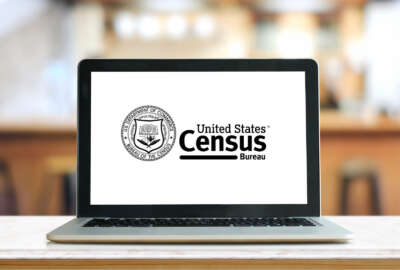
Census toolkit gives agencies what they need to launch data sprints with industry
The Census Bureau’s Opportunity Project puts federal data to work, pairing agencies up with tech teams from the private sector and non-profits to create digital...
The Census Bureau’s Opportunity Project puts federal data to work, pairing agencies up with tech teams from the private sector and non-profits to create digital projects that benefit the public.
The project started out as a one-off tech sprint led by the White House during the Obama administration, but the bureau led subsequent efforts and scaled the project up to what it is today.
After five years of facilitating these data sprints between government and industry, the bureau is giving other agencies a shot at leading these projects on their own.
Rather than have the bureau continue to serve as the central organizing force between subject-matter experts and the partner agencies, the Opportunity Project is launching “TOPx,” an open-source toolkit that sets the stage for other agencies to lead these sprints.
Opportunity Project Director Drew Zachary said in an interview that colleagues at the departments of Veterans Affairs and Health and Human Services inspired the TOPx concept and already launched data projects with industry partners on their own.
The bureau piloted the TOPx concept with the State Department’s Office of Foreign Assistance, which worked with Suffolk University and Syracuse University on a sprint focused on civics education.
Zachary said agencies have come a long way in making their data sets more user-friendly and available to the public, which demonstrated that the bureau no longer needed to orchestrate the whole process.
“The idea with this new TOPx toolkit is that agencies will be able to be more in the driver’s seat and require less facilitation from the Census Bureau team and really be able to scale this further across government than we would be able to if we were running every aspect of it,” Zachary said.
Following the rollout of the TOPx toolkit, the bureau will continue to run sprints using its own data, and focus on the priorities and topics of its choosing.
Over the last five years, Census set the topic for each year’s sprints and put the call out to agencies to provide problem statements that would serve as the basis of each sprint. The bureau would then recruit partners from industry, academia and non-profits and oversee the logistics between each project.
Opportunity Project Deputy Director Radhika Bhatt said the bureau, even before the pandemic, led this communication through emails, Slack, and videoconference meetings with check-ins every two weeks — a format that went unchanged during mandatory telework.
“When COVID happened, we were well-suited for that shift, and we were able to also run a couple of workshops and roundtables virtually as well,” Bhatt said.
Next year’s sprints will focus on COVID-19 economic recovery supported by the bureau’s Data Curation Hub, a repository of open data from other agencies meant to help with the medical, economic and community responses to COVID-19. Zachary said the bureau is also looking at working with HHS on a TOPx sprint focused on the pandemic.
This week’s demonstrations focused on natural and built environment challenges, will showcase more than 35 new tools between agencies and more than 300 participants from the private sector.
“The 12-week process is really where the magic happens, but Demo Week is a big part of that process because it actually brings people together and shows the entire culmination of work that’s happened throughout the entire year,” Bhatt said.
Census Director Steven Dillingham said in an opening keynote that the Opportunity Project is a “great example of how the Census Bureau and other government agencies working together with industries and communities to make data more widely available.”
“The amazing new tools developed by participants are wide-ranging,” Dillingham said. “They enhance our understanding of threats to our oceans and air, address challenges of recycling and better agriculture practices, show how technology, data and government can better serve tribal communities, help low-income families and refugees improve economically and address other critical challenges through the use of federal open data.”
Copyright © 2025 Federal News Network. All rights reserved. This website is not intended for users located within the European Economic Area.
Jory Heckman is a reporter at Federal News Network covering U.S. Postal Service, IRS, big data and technology issues.
Follow @jheckmanWFED




